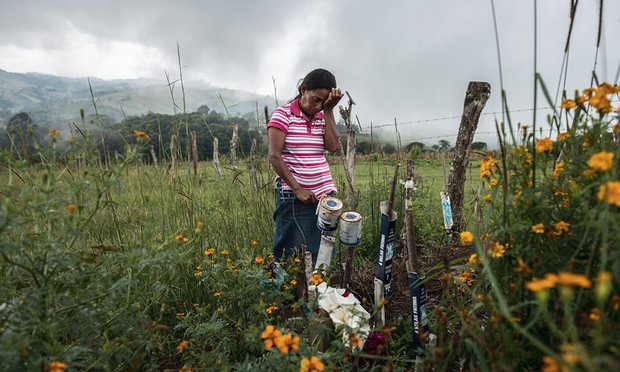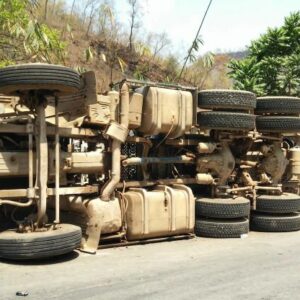
Honduras, a small Central American country covered by lush rainforest, has now become notorious for the many brutal murders of environmental activists in recent years. Hondurans are increasingly facing persecution in the form of violence, threats, evictions, and imprisonment, simply for protesting the desecration and exploitation of natural resources by major corporations and local business elites— practices which are largely condoned by its government. This systematic violation of human rights for capitalist purposes has taken the lives of over 100 activists since 2015. Honduras has been named the deadliest country in the world for environmental activists.
Situated between Nicaragua and Guatemala, Honduras has one of the highest murder rates in the world. This problem is aggravated by an economy on the rocks and a government rife with corruption. The anti-corruption group, Global Witness, has been investigating the rash of violence for several years, uncovering more and more cases of abuse and brutality against those who question the extensive projects of international companies constructing dams, mines, logging or agriculture on their land. Billy Kyte of Global Witness illustrates the crisis, “Our investigations reveal how Honduras’ political and business elites are using corrupt and criminal means to cash in on the country’s natural wealth, and are enlisting the support of state forces to murder and terrorize the communities who dare to stand in their way”. As explained by the Goldman Environmental Foundation, “Almost 30 percent of the country’s land was earmarked for mining concessions, creating a demand for cheap energy to power future mining operations. To meet this need, the government approved hundreds of dam projects around the country, privatizing rivers, land, and uprooting communities”.
The murder of Berta Cáceres, Honduran environmental activist and founder the Civic Council of Popular and Indigenous Organizations of Honduras (COPINH) brought international attention to the dangers faced by Honduran activists. After years of receiving threats, in March 2016, several armed men broke into Cáceres residence in the middle of the night and shot her dead. Cáceres, mother of four, was also the winner of the 2015 Goldman Environmental Prize, awarded for over a decade of activism opposing the construction of the Agua Zarca hydroelectric dam on her community’s land. Her family and community continue to seek justice for her murder. “She was killed for defending life, for safeguarding our common goods and those of nature, which are sacred. She was killed for defending the rivers that are sources of our people’s life, ancestral strength, and spirituality,” conveyed her son, Salvador Edgardo Zuniga Cáceres.
As capitalist moguls scramble to protect their investments by any means possible, the Honduran government has continually been criticized for turning a blind eye, approving or engineering these violations of human rights. Entire communities are being displaced and sacred lands are desecrated while politicians and other officials profit from abusive business projects. High impunity and the dangers of socioeconomic inequality continue to claim the lives and homes of those who seek to protect their families, land, and culture.
What are your thoughts? Please comment below and share this news!
This article (Violence Against Eco-Activists In Honduras Reaches Epidemic Proportions) is free and open source. You have permission to republish this article under a Creative Commons license with attribution to the author and True Activist.


